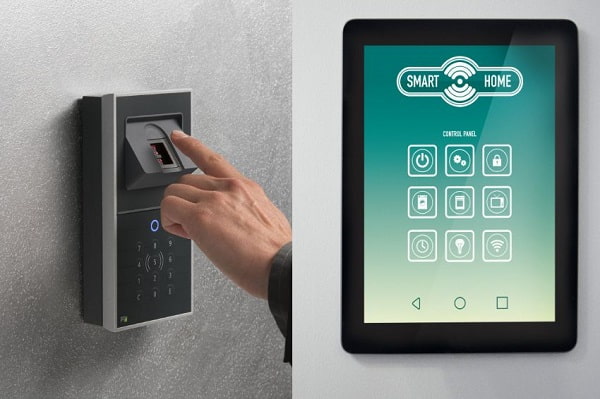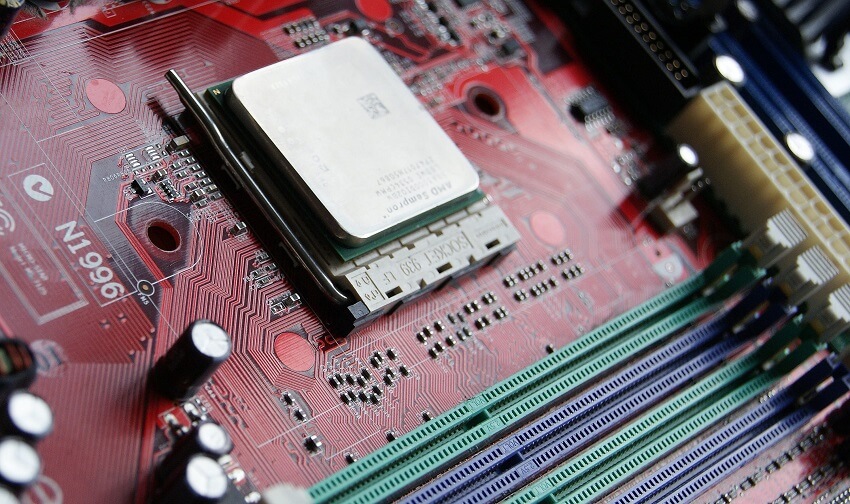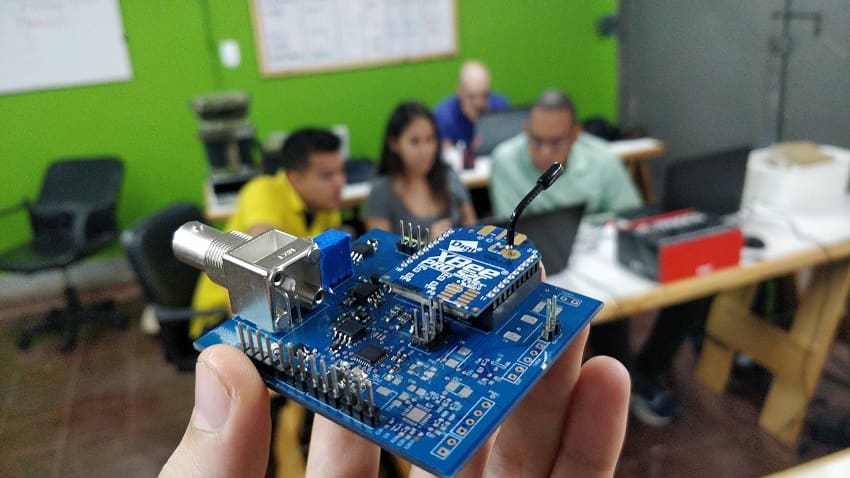Do you still doubt why IoT is important? You just have to look at all the IoT devices that are in the market, and which people try to connect with each other. For instance, we see different devices that have IoT features and are used at home (IoT device examples). How can they communicate in a safe way? Through a reliable IoT hub.
In this article we will provide the IoT hub definition, how it works, and the benefits of using it.
IoT Hub definition
An IoT hub serves as a bridge between IoT devices and the cloud. It enables seamless communication of data, monitoring, and coordination among different devices. If a business has an IoT application that manages several devices, they will need a good IoT hub for ensuring a bi-directional communication.
For instance, IoT hubs act as a central hub for connecting and managing various smart devices within a home. What devices could be connected to the same hub IoT?
- Thermostats
- Security cameras
- Lights
- Locks
- Home appliances.
This centralized hub allows users to control and monitor their smart devices from a single interface, typically through a smartphone application or a web portal.
Microsoft’s Azure IoT Hub serves as a channel between the cloud and the Internet of Things. This comprehensive cloud service is fully managed, facilitating secure and dependable bi-directional communication between countless IoT devices and the solution back end.
Another option is AWS IoT hub, they also provide a reliable solution for connecting several devices to an IoT application.
Companies are being more aware of IoT and cloud computing, they understand how important it is to handle the data in a secure way, this is why IoT hubs become an important part of the IoT ecosystem.
Benefits of IoT Hubs
By using IoT hubs, people can send data to the cloud from their IoT devices, which then will be displayed on an application (see 5G IoT). They can also control the devices from the application, or upload files from the smart devices.
Here are some benefits of using IoT hubs:
Streamlined connectivity and control:
An IoT hub provides a unified platform that simplifies the management and control of multiple smart devices. With a single app or interface, users can monitor data and adjust settings, receive notifications, and automate routines, enhancing convenience and efficiency in daily life.
Monitoring capabilities are provided by IoT Hub, enabling people to keep tabs on device creation, device connections, and device malfunctioning. IoT Hub has the ability to handle millions of devices connected simultaneously and process millions of events per second, ensuring optimal support for your IoT tasks.
This is really useful for industrial IoT applications, since companies can monitor thousands of IoT devices and the data they generate from a single software or app.
IoT hubs enhance security:
Using an IoT hub would be a great ally for improving security of the data that is collected and sent to the cloud. Not only the information is securely transmitted, but also, there are authentication protocols that ensure all devices are safe when sending and receiving data.
On the other hand, if we talk about physical security, IoT hubs are a great idea for smart homes, since security devices like smart locks, door/window sensors, and surveillance cameras can be connected.
Users can receive real-time alerts and remotely monitor their homes, they can open doors, turn off cameras, or trigger anti-theft alarms.
Customized automation

Hub IoT enables the creation of personalized automation scenarios or routines. Since all devices are connected to the cloud, different actions can be triggered when an event occurs.
For example, when the user arrives home, the hub can receive the signal from the user’s application, and automatically turn on the lights, adjust the thermostat, and play their favorite music. This level of automation adds convenience and comfort to everyday life.
IoT hub scaling
Scaling intricate IoT networks presents a considerable challenge. However, leveraging a managed service such as Azure IoT Hub can greatly facilitate the scalability of your IoT application, even when dealing with a large number of IoT-connected devices.
A seamless scalability is possible when the IoT hub is perfectly connected to the IoT application that processes all data.
Final considerations for IoT Hub and IoT project
To ensure your IoT solution will have great performance in the market, it is necessary to analyze the different IoT hubs and their compatibility with smart devices and IoT protocols.
If you don’t count on good embedded programming languages for your IoT devices, there could be issues in the connectivity and sending of the information.
If you are unsure on how to guarantee a good performance of your IoT device, look for IoT product design and development consultants that have experience in agile hardware development.
At DeepSea Developments we could help you out with your project. If you have any questions around IoT hubs or new upgrades for your device, book a free consultation with our team.






